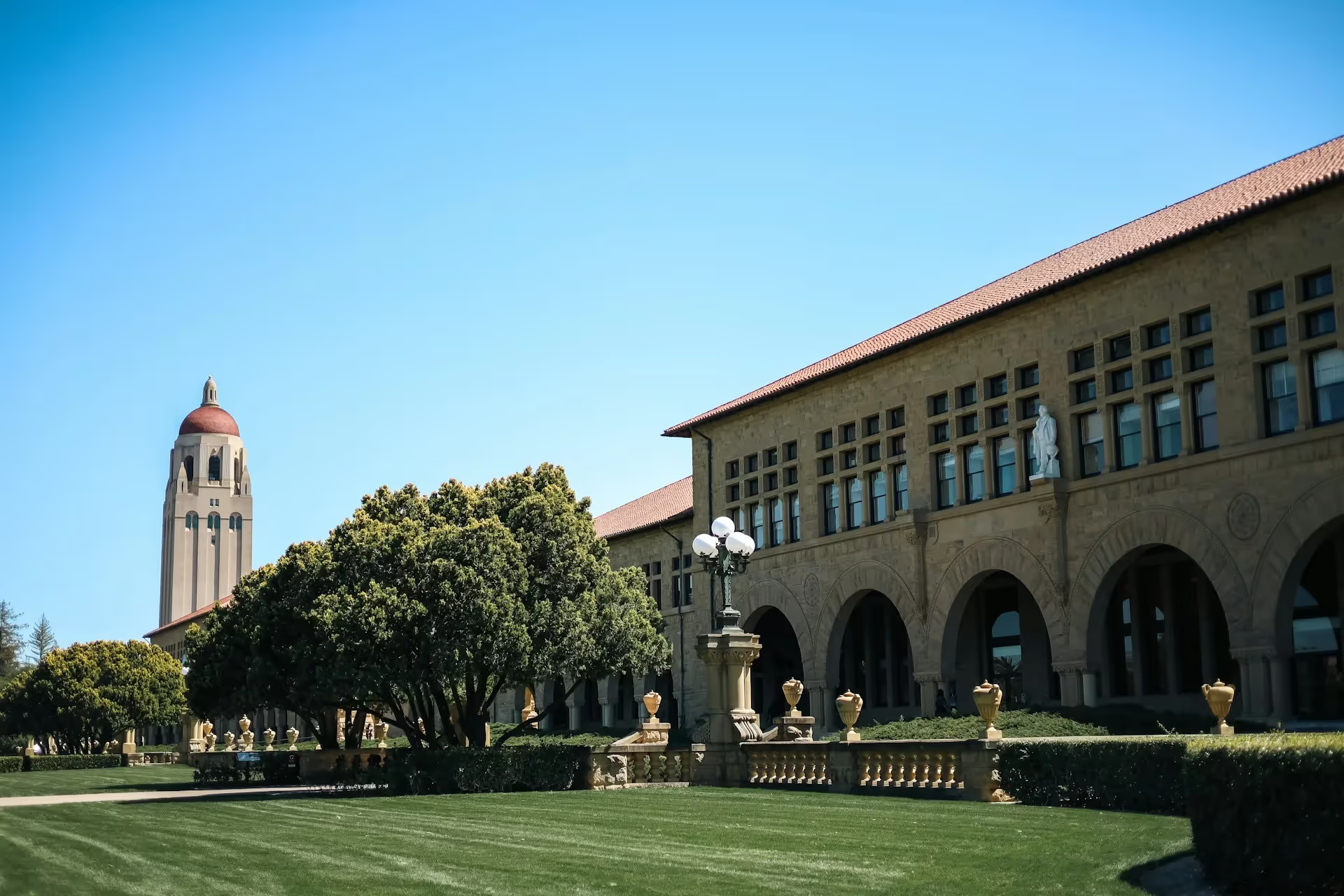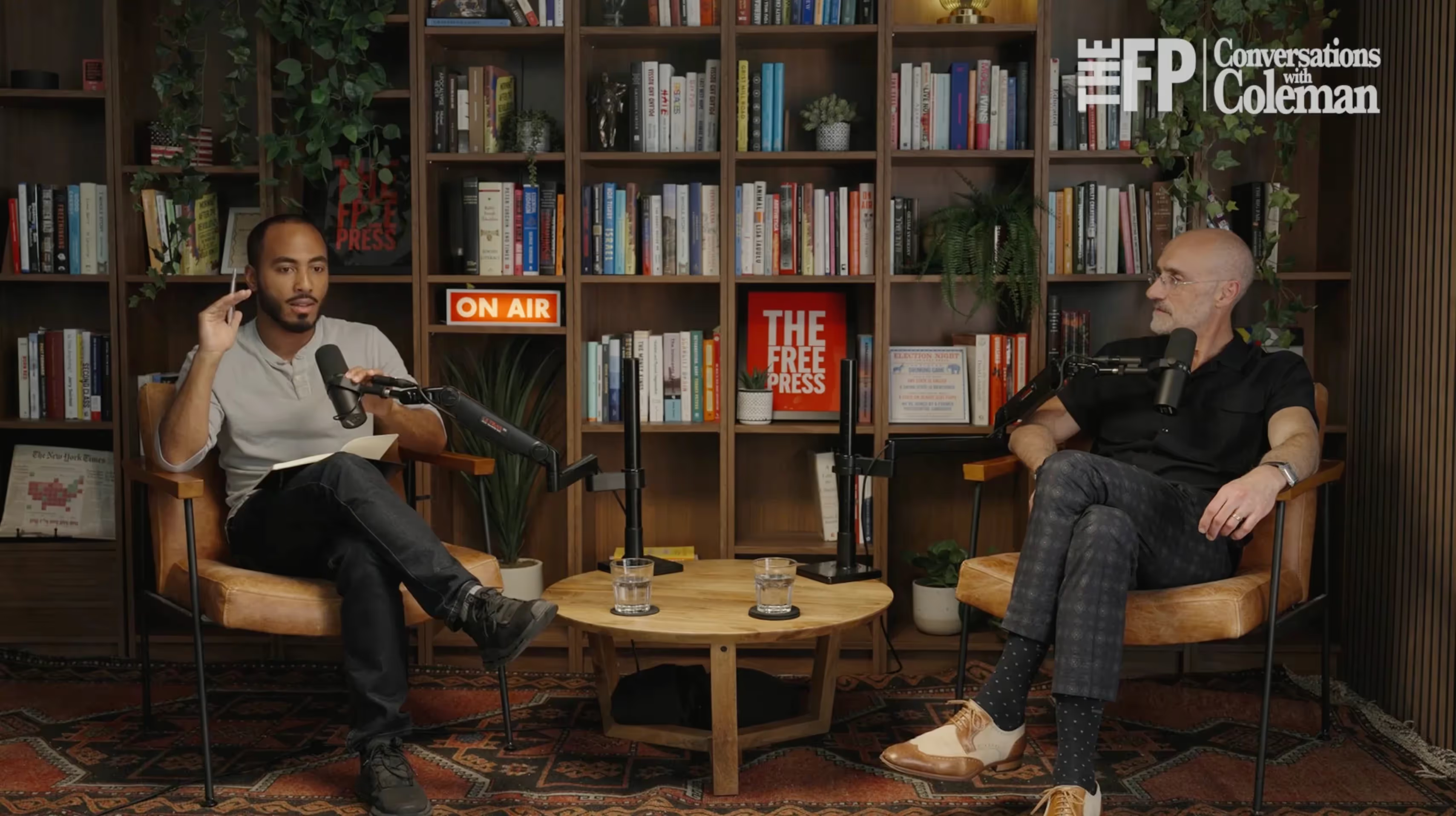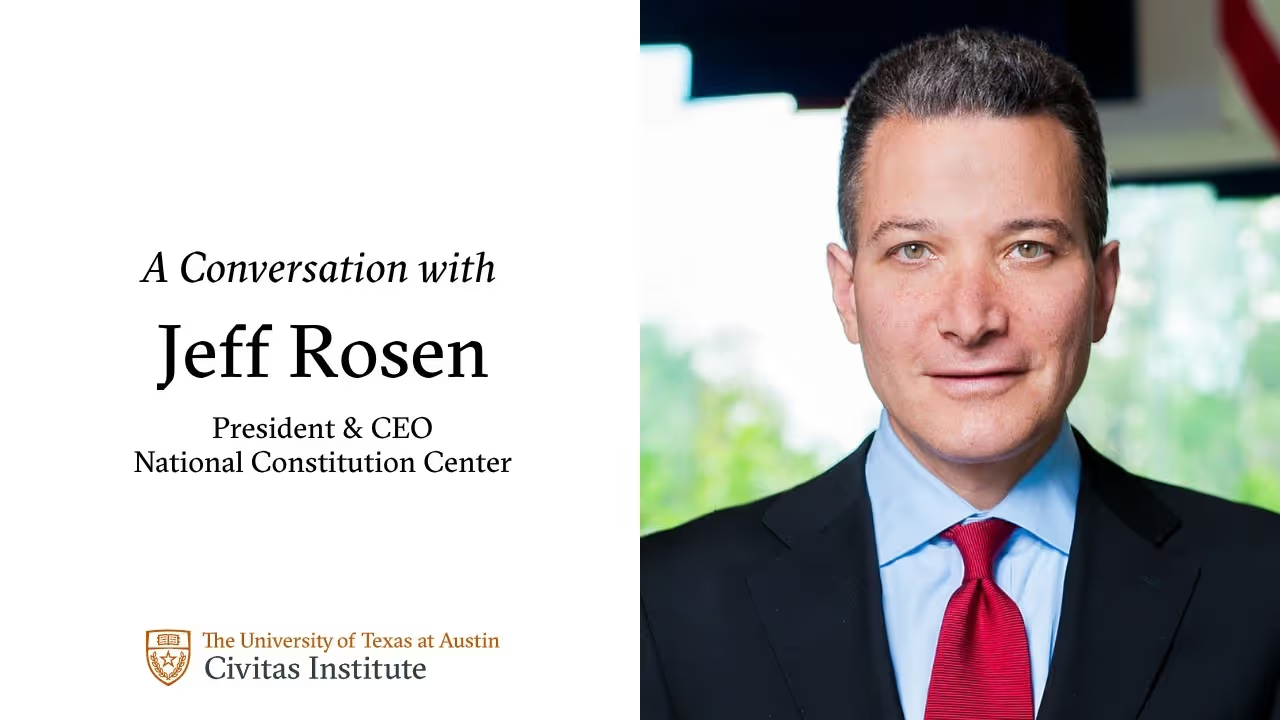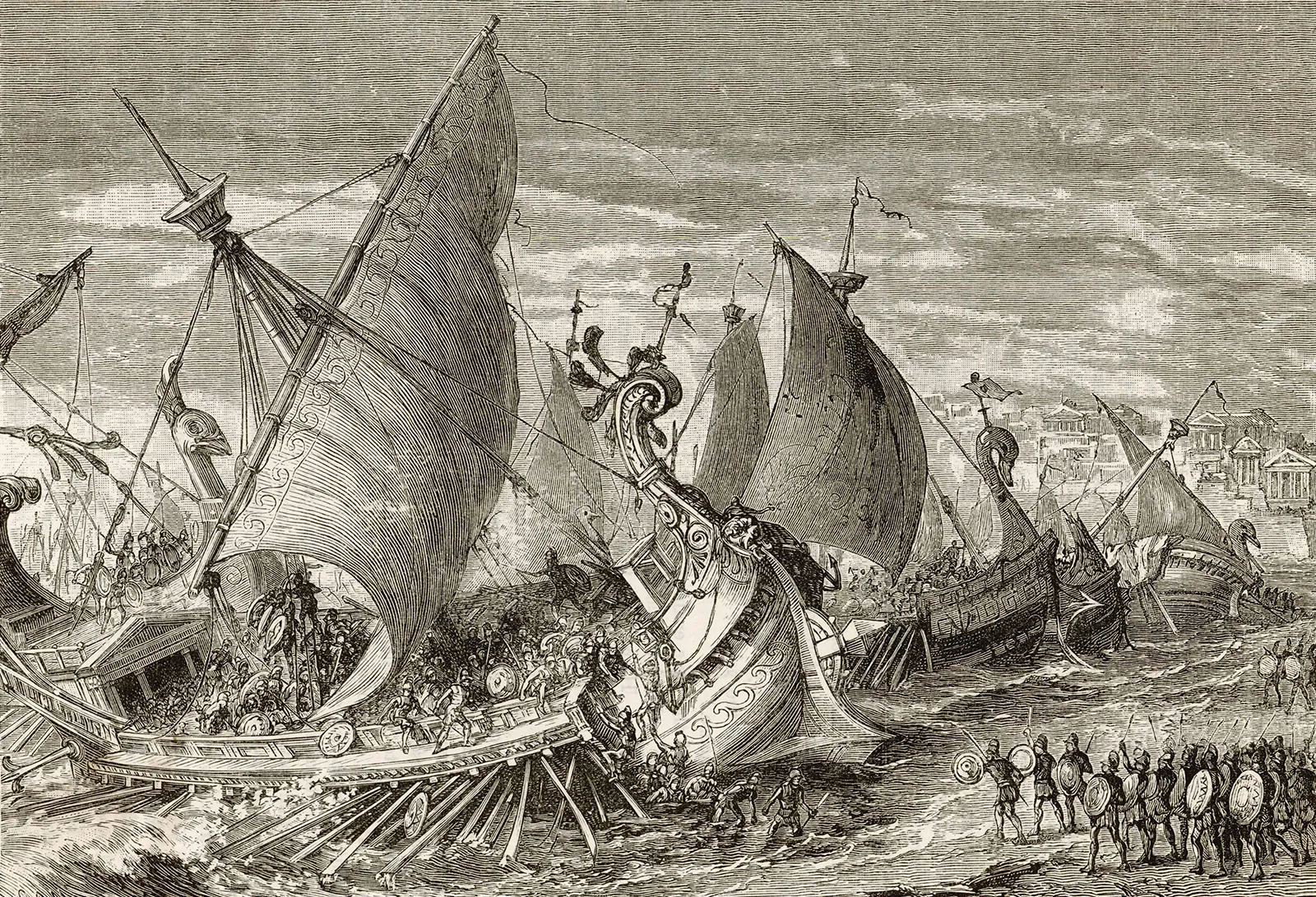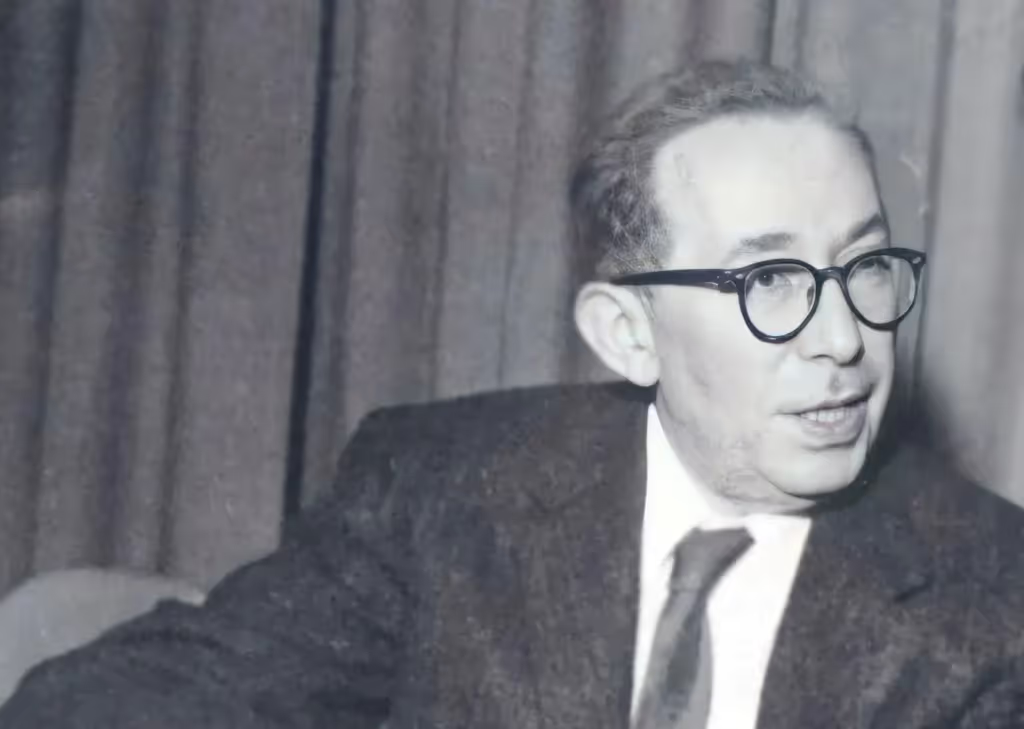
Did Leo Strauss Get Religion?
Leo Strauss's engagement with the theological-political problem affords ample reason to study his work.
The Jewish political philosopher Leo Strauss (1899-1973) is famous for having said that the “roots” of Western civilization are the Hebrew Bible and Greek philosophy – each providing an estimable portrait of the human soul at its best – and for declaring that, in the contest between the two for being the supreme guide for man, neither could defeat the other.
This led to certain conundra, one of which is, if philosophy cannot defeat faith, then is it not based on a petitio principii contrary to its own criterion of evident rationality? The leading German Strauss scholar and devoté, Heinrich Meier, attempted to cut the knot by declaring that Strauss believed that he had refuted the claims of Revelation in a 1948 essay. Having read the essay with some care, I did not find that claim borne out. Nor have others.
Christian scholars have pointed out another conundrum. They indicate that Strauss’s presentation of “Biblical faith” and of the contest between it and philosophy is based on Judaism and on a particular reading of Hebrew Scripture, according to which God is sovereign and utterly mysterious Will. As such, He is a constant threat to the intelligibility of the world and to reason’s activity, including its employment in philosophy. These commentators have rejoined that this is much more a portrait of an Islamic view of the divine, of Allah, and ignores a third option, the God of the Christians.
The God of Christians is the God who created by intelligible speech-acts in Genesis 1, and who became human as the Logos-made-flesh, according to the prologue of St. John’s Gospel. As such, He is suffused, and more than suffused, with intelligibility; He is utterly Logos. In turn, His image and likeness, man (Adamah), is endowed with the God-like power of logos, and the two, Original and image, are called to enter what Christian Scripture calls a relationship of “λογικὴν λατρείαν,” reasonable worship (Romans 12: 1). All this escapes Strauss’s characterization of “Biblical religion” as based on divine Will and Law.
Yet other scholars have maintained that Strauss’s strict teaching of “the fundamental alternative” of “Jerusalem or Athens” is dictated by rhetorical and pedagogical aims. It is not the full truth of either or both. While there are important differences between the two, at a deeper level, they share core moral elements: a recognition of human nobility, justice or natural right, and of intractable human evil. In Strauss’s rhetorically tailored presentation, each Authority took one or another phenomenon for its special province. Strauss, however, knew and in places indicated that both parties acknowledged the full range of human moral phenomena. They differed in how they framed them, that is, where they thought they pointed in an articulation of the Whole, toward “impersonal necessity” or Divine Providence.
Thus, the common moral core, more than the direction in which each alternative developed them, stood as Strauss’s ultimate standard against which he judged other teachings. This has certain implications. As he also famously said: the moral man is the potential believer. Insofar as the philosopher is a moral human being, the same would be true (mutatis mutandis) for him. As I would put it: a philosophy, or philosopher, whose “zetetic” questioning simply calls these moral data into question, or whose explanations – hypothetical or not – dissolve or reduce them, is not only not faithful to reality, but displays an unreasonable blindness and hubris toward it – one with which biblical religion, Jewish and Christian, is intimately familiar.
This is especially true if the philosopher recognizes a human phenomenon that intrinsically combines morality, intelligence, and the divine: conscience. While there are, no doubt, mysteries here, there is also evidence to respect and guidance to follow. Strauss’s acknowledgement of the reality of “sacred restraints” – that all things are not permitted – could be placed in this context. One could also use it to take the measure of his famous (or infamous) claim in Natural Right and History that the “merely” moral statesman is a “mutilated human being.” To this, one could retort that the image of “the philosopher” created by Strauss (following the example of Plato in the Theatetus and the Republic) is itself a mutilated human being, albeit arguably a philosophical fiction.
Setting the Stage for Religion
It was necessary to start this review as I did for two reasons: the first, to remind the reader of the deepest levels of Strauss’s engagement in what he himself called “the theological-political problem” and, secondly, to indicate the specific angle that the editors of this fine collection of Strauss writings “on religion” take. According to the Introduction by the Series Editor, Kenneth Hart Green, Strauss “also reflected deeply about religion in general, from his first scholarly works to his last – from his debut book, Spinoza’s Critique of Religion, to one of the last pieces he wrote for publication, “Preliminary Observations on the Gods in Thucydides’ Work.”” As a political philosopher and Jew, he “evidently considered religion to be also one of the most requisite, decisive, and weighty issues for anyone who thinks seriously about the goods of human life, the order of society, and the best political regime.” He “clearly regarded religion in general as well as other [i. e., non-Jewish] traditions as distinct phenomena of great profundity and power.” Therefore, “he viewed it as the duty, if not also the need, of every researcher but also every thinking human being to confront the great religions and to determine how they variously affect human life and deal with human fate.” This edited volume presents highpoints of Strauss’s own journey, discoveries, and claims.
Writings and Interpretations
Its subtitle, “Writings and Interpretations,” points to the distinctiveness of the volume. “Writings” is not the same as “essays” or “articles,” and “Interpretations” points to the need for the writings to be interpreted. Thus, in the first category we have notes for classes, excerpts from classes, excepts from published writings, a transcript of a lecture, and unpublished notes indicating an intense engagement with an author’s oeuvre. The last description fits the final entry, tellingly entitled “Strauss’s Confrontation with Pascal”. It has the distinction of being the only entry with no interpretation. The reader is thus invited to enter into and form their own opinion between the Jewish Platonist and the Christian apologist.
The work of the two editors of the volume, Svetozar Y. Minkov and Rasoul Namazi, is of particular importance, as they select or approve the morceaux et textes choisis, as well as the interpreters. The latter range from long-established scholars (Joshua Parens, Steven Frankel, Nathan Tarcov), some of whom studied with Strauss (Martin Yaffe, Ralph Lerner), to younger scholars (Alexander Orwin, Alex Priou, Andrea Ray). Also included are non-American scholars of Strauss (the editor Rasoul Namazi, Hannes Kerber, Yehuda Halper, Till Kinzel, and Philipp von Wussow). The latter suggests something of the range of international interest in Strauss and his work, although to capture that, one would have to include many other countries (Canada, China, France, Italy, Portugal, Romania, etc.) as well.
In these ways, as well as others, this collection cum commentary takes its place among the latest wave of scholarly interest in Strauss and his thought. First made widely known by his work written in English and published in America, American detractors of Strauss discovered a purportedly problematic “Strauss before Strauss,” one to which his students and followers had to respond. This led to excavations and proper contextualizations of pre-American writings, as well as the preservation and cataloguing of his courses at the University of Chicago. To these, one could also add increased appreciation of his Jewish work (to which the Series Editor has made signal contributions), as well as more recent work on his reception and employment by Chinese scholars. Scholars and thinkers, East and West, have found that Strauss offers intellectual insights and resources unavailable elsewhere. I share that judgment.
An Overview
After two introductions (one by the Series Editor and the other by the two editors), the collection comprises seven parts and an Appendix. Each part contains a text or texts by Strauss on a thinker or topic, then two interpretive essays. They are not in chronological order of the thinkers considered, but rather of Strauss’s own intellectual itinerary. Therefore 1940 and 1942 “Notes on Lessing’s Nathan the Wise” (1779) are first, the Lessing who provided decisive interpretive keys for Strauss as a scholar and philosopher, concerning the practice of esoteric writing by previous philosophers and the imperative of philosophical disinterestedness, of bracketing one’s relationship to one’s native religious tradition, in considering the truth claims of religions. These keys were so crucial for Strauss that he wrote that he preferred Lessing to Goethe. He was the thinker most free from the prejudices and presuppositions of modern philosophy, that philosophy must be systematic, and that it must contribute to popular Enlightenment. The latter is an oxymoron, and the former puts the philosophical spirit in a straitjacket.
The second part shows Strauss finding a kindred spirit in the medieval Jewish thinker Yehuda Halevi (c. 1075-1141) and employing these keys to unlock “The Plan of the Kuzari” (c. 1941-42). The third, on “Abraham and Maimonides” (1953), continues in this vein with “the second Moses” of Judaism, Moses ben Maimon (1134-1205); while the fourth, on a “fresh study” by Strauss “On Spinoza” (c. 1959), takes on the great modern Jewish critic of his medieval predecessor. (Strauss famously said of his early interpretation of Spinoza that he “understood him [too] literally because he didn’t read him literally enough.”)
The fifth section turns to what one could call the beginning of Strauss’s “return to the Ancients,” in “Notes on Plato’s Symposium” (1959). The sixth part then jumps back to the Moderns and to a “Seminar in Political Philosophy: Rousseau” (1962). Rousseau famously returned to an ancient category, “civil religion,” in the Social Contract, to address certain defects in modern liberal theory, while also providing a “Profession of Faith of a Savoyard Vicar” in Émile, thus posing the question of Rousseau’s considered view of religion. The seventh and last part presents a transcript of a lecture on “Religion and the Commonweal in the Tradition of Political Philosophy” (1963). Finally, as I said earlier, “Strauss’s Confrontation with Pascal” is added as an Appendix, sans commentaire.
From this wealth of original thinking and expert commentary, I will present three highpoints, leaving a multitude of insights and provocative thoughts for the reader to discover for him or herself. First, let us return to the beginning, to Strauss’s decisive encounter with Lessing.
Till Kinzer on Strauss on Lessing
Strauss’s engagement with Lessing antedates the writings on “Nathan the Wise” republished here. “In a letter to Ernest Simon from March 1937, on which Thomas Meyer reports, Strauss expresses his view that there was no mind freer in intellectual terms in the whole of modernity than Lessing’s.” This was followed by “the astonishing claim that Lessing will be still read in the future when nobody will anymore be interested in Johan Wolfgang von Goethe or Friedrich Schiller.”
What was it that so captured Strauss in Lessing? “Lessing was … a thinker who according to Strauss could only be understood in light of his [Lessing’s] rediscovery of esotericism.” This was an important discovery, but it still faced the fact of “the different kinds of texts Lessing wrote not only as a scholar but also as a poet and playwright.” Here, a combination of attention to internal textual details and external circumstances was required. Not any sort of circumstances, but those of a certain sort: “Strauss notes that Lessing actually escaped to or into poetry because he had been forbidden by his employer, the Duke of Brunswick, to continue the theological controversies in which he was engaged due to his publication of the fragments from Hermann Samuel Reimarus’s deistic critique of religion.”
The publication of Reimarus’s fragments was part of broader “late eighteenth century debates concerning Spinozism, philosophy, revelation, and theology.” In Strauss’s view, “Lessing provided, together with Friedrich Heinrich Jacobi [on whom he wrote his dissertation], a focal point for understanding what was at stake” in the debates: was Spinoza or Spinozism the truth of philosophy, and its critique of Revelation, the end of the credibility of Revelation? It turns out that Lessing provided a third possibility: tertium datur. He “opted for” philosophy, exoterically taught tolerance and toleration, and esoterically scrutinized the claims of revealed religion.
Till Kinzel, the scholar from whose interpretive essay I have been quoting, then does what genuine scholarship should do: having carefully exposited, he “fact checks” Strauss’s claims. This in no way indicates disrespect, but rather real respect for Strauss and his example, and greater respect for the truth of the matter. He begins by gently making two scholarly qualifications to Strauss’s reconstruction of Lessing. While “Strauss seems to have believed that Lessing learned about esotericism directly from the ancients, … this may only be half the truth.” “There are indications that [Lessing] may well have known about discussions of esotericism in the works of a then-famous contemporary of Leibniz, namely John Toland (whose writings, as one should keep in mind, were known to Hermann Samuel Reimarus as well, as Lessing would most certainly have known.)” English treatments of Aesop’s Fables and Leibniz himself may have also alerted Lessing to the practice of conveying overt and covert meanings in a single text.
Secondly, while “Strauss implicitly suggests that Lessing’s play belongs to the more exoteric ways of presenting his thoughts, … a closer look might lead one somewhat into confusion.” On one hand, “Strauss emphasizes that what Lessing chose was in fact the most vulgar kind of poetry[… ] [b]ecause ‘it does not even presuppose reading’ [italics in the original]. However, “this suggestion by Strauss might be thought to be somewhat in tension with the fact that Lessing seems not to have expected a theatrical performance of this particular play any time soon.” Rather, in private correspondence with his brother, Karl, Lessing “not[ed] that it would be enough if the play was read with interest, especially if among one thousand readers there would be a single one who came to the conclusion of doubting the evidence and universality (Allgemeinheit) of his religion.”
The last point is key, because it reveals Lessing’s own aim in the play, at least for the rare “thoughtful reader.” Such a reader is to come away doubting both “the evidence and universality of his religion,” be it Judaism, Christianity, or Islam. Strauss, however, in his published notes and drafts, never cites or makes this claim about Lessing’s deepest intent, it neither guides his reading nor concludes it. At least in this case, scholarship seems to be able to take the measure of interpretations, or at least to give a serious reason to doubt the adequacy of Strauss’s.
This leads to an important general point made by Professor Kinzel. At the beginning of his treatment, he duly notes and provides a fine discussion of the fact that both Lessing and Strauss, while offering sharp criticisms of “scholars” and of much of “scholarship,” also practiced scholarship in conjunction with their philosophical inquiries and investigations. Indeed, as Kinzel reports, according to Strauss, scholarship is an indispensable means of escaping from what he famously called “the cave beneath the cave” of modernity. In seeking to read modern and premodern authors in the ways they wished to be understood, the contemporary scholar who comes across and takes seriously discussions of “exoteric” and “esoteric” writing, as well as notes clues and signs of its practice in the texts he exegetes, is in a position to escape from the various forms of the historicization of thought (Nietzsche, Heidegger, Marxist) on offer in late-modern times. Philosophy may not be the handmaiden of theology, but scholarship can be the handmaiden of philosophy.
Strauss on Plato on pagan theologies
One of Leo Strauss’s greatest achievements and gifts to us is that he taught us how to read a Platonic dialogue. Abstracting “doctrines” or “reconstructing arguments” from them was to violate their integral nature. They are fictional dramas, dialogic dramas, and the choice on Plato’s part to communicate in this form must be respected and all the elements of a dialogic drama – the dramatis personae, the setting, the backstory, the movement of the conversation or discussion – its beginning, its twists-and-turns, and even its moments of “illogicality” – must be factored into one’s reading. Its possible rhetorical and pedagogical dimensions must be part of one’s interpretive awareness as well. Finally – and more daringly – one must ask the question, what essential element or dimension of the ostensible topic of the dialogue is omitted? Can one really speak the truth about piety or holiness without talking about the soul or the true character of the divine? The Euthyphro attempts just such an abstraction.
Given his interest in religion, and given his enormous respect for Plato, Strauss wrote much on Plato on religion and theology. Indeed, it was Plato who coined the term “theologia” in his Republic. Strauss’s last published work was a close – extremely close – reading of the Laws and its presentation of things religious and theological. In this collection, we hear him speaking about the theologies on offer in the beautiful dialogue, the Symposium. And once again, we are provided expert guidance, in this case by Alex Priou, who has published a book on the Symposium.
In a tour de force of interpretive comprehensiveness and precision, Priou situates Strauss’s treatment of the Symposium in the movement and whole of Strauss’s mature work, showing how it is the culmination of Strauss’s treatment of the classical treatments of the highest question of philosophy, quid sit deus? Strauss’s reading revolves around analyses and comparisons and contrasts between and among its three most prominent speakers on eros: the comic poet Aristophanes, the tragic poet Agathon, and Socrates, together with a reflection on the mind that produces the dialogue, the philosophical poet, Plato himself. The first three are presented as advocates of three distinct types of eros, with the first two providing two distinct naturalistic derivations of the gods from them. Socrates, however, serves as their critic, basing his critique on his own understanding of eros as the desire for the good, or for human happiness. Thus, Strauss lays out “the Socratic view, according to which the passions generating the gods of the city are subordinate to the ubiquitous human desire for the good.”
Once one has laid bare the effectual truth of the deities produced by distinct human passions, there is both loss and gain. As Strauss put the matter:
… the Olympian gods lose their basis. The Olympian gods are products of eros, but of a certain kind of eros: of the love of the beautiful – they are simply beautiful beings; but in a more indirect way, as avenging gods they are the products of the love of one’s own. One’s own, culminating in the polis, one’s right, and, therefore, in the need for avenging gods. Therefore, the gods do not reappear anymore, whereas love of one’s own and love of the beautiful reappear (Italics added).
Here at its Platonic peak, naturalism, or the anthropological derivation of religion, of the types of gods, and of the human-divine relationship, reaches a certain culmination. Three things, however, cause one to pause over its adequacy as an answer to the question, quid sit deus?
First, “Strauss notes both here and in the course [on the Symposium] that thumos is never mentioned in the Symposium, that it is the essential feature from which the dialogue abstracts.” There is more to the human soul than eros. Second, Strauss himself recognized that this was a consideration from a certain perspective, one that had a double limitation. As for the first limitation, in his opening Introduction, the Senior Editor of the series quotes Strauss as saying, “Humanly speaking, the unity of fear and pity combined with the phenomenon of guilt might seem to be the root of religion.” This account of “the root of religion” is not what we just read in Plato. More importantly, the qualifier “humanly speaking” indicates that Strauss was aware of another sort of account of the root or source of religion. It could have a divine Origin.
Strauss on Pascal
I have heard from credible sources that Strauss was powerfully moved by his encounter with Pascal. Here was a serious challenge to what he held near and dear, his intellectual independence, and the legitimacy of his ongoing searching treatment of the various alternatives to man’s allegiance: the political community; autonomous reason; and God’s Word. In preparation for a 1947 course on “Reason and Revelation,” Strauss devoted twenty-two pages of notes to an engagement with Pascal’s Pensées.
As I said earlier, there is no interpretive essay accompanying this reprinting of “Notes on Pascal (1947)”. There is, however, a three-page introductory section entitled by one of the editors (Svetozar Minkov), “Strauss’s Confrontation with Pascal”. In it, he presents what he plausibly believes is the core of the confrontation: Strauss’s “twofold response” to Pascalian “presuppositions” concerning “modern science” and “biblical morality”. Before proceeding, we should pay some attention to the term “confrontation”.
On one hand, the co-editor writes that “we might point out the crucial argument or challenge that Pascal poses on Strauss’s reading: it is that the philosophical life is not permitted, is even sinful, and is not able to get a hold of unchangeable necessity.” In this formulation, Pascal is the aggressor, with Strauss the defendant. However, the title of the Appendix is “Strauss’s Confrontation with Pascal,” which puts the emphasis on Strauss and his activity. I believe this is the truer emphasis when it comes to taking stock of the engagement laid out in the “Notes of Pascal”.
In truth, Strauss dictates the terms of the engagement and – to someone who knows Pascal’s text and thought – shows himself less than fully open to Pascal’s real claims. For example, Strauss indeed makes the category of “biblical morality” one of the two “presuppositions” of Pascal’s thought and challenge. However, Pascal himself never uses that term or phrase, and the meaning that Strauss gives to it (condemnation of pride, exultation of humility) is not the meaning that Pascal gives to his own preferred term and theme, “Christian morality”.
Nor does Strauss ever write the name “Jesus Christ” in this engagement with Pascal, nor the words “grace” or “concupiscence,” essential Pascalian categories, and, contrary to Pascal’s discussions about the ways God appears to various types of human beings, he writes “(Deus absconditus – God tempts man.)” (italics in the original), imputing a motive to the Divine that Pascal never does. In Pascalian terminology, one would say that Strauss had a “carnal” or “natural” approach to reading Pascal.
Based on these Notes, I do not find that Strauss, who was infinitely more intelligent than I am, succeeded in understanding Pascal as he understood himself. Three Pascalian points seem to me missed by Strauss:
1) He does not cite, much less begin with, Pascal’s own statements of methods and aims. Violating his own principle of interpretation, he did not take the guidance offered by the author. Using the 1908 Brunschvicg edition of the Pensées, he (1) goes straight to his concerns, the Pascalian “critique of philosophy” and the alternative of “faith” (which Strauss does not qualify as “Christian faith”); (2) intersplices his own secondary authors (chiefly Spinoza, but others such as Aristotle), as well as characteristic themes from his other writings (e. g., the distinction between love and admiration); while (3) roughly following an order that he designates as “Pensées I,” “Pensées II,” Pensées III,” “Pensées IV,” “Pensées V,” “Pensées VI,” “Pensées VIII-IX,” and “Pensées X”. There is no effort at laying out the principle or main thread (or threads) of the discussion. At different points, he speaks of “Pascal’s starting-point,” “The most important question,” and that on which “the whole analysis” depends, in other words, decisive moments or highpoints in the Pensées, at least according to his concerns and lights. “Notes” is indeed the right word for the collection, but it begs the question of its adequacy to Pascal’s thought. I gave examples above that tend toward the negative. There are others.
2) Strauss failed to recognize that Pascal requires (more precisely: demands) a certain sort of reader, that he does not seek to present his “thoughts” to just anyone. He knows that many have hardened hearts that adversely affect their ability to hear and comprehend what he says. While in charity, he does reach out to them and tries to “stir” them out of their doldrums, he is clear that the state of the question requires things from the reader. He requires – reasonably, I would say - someone who recognizes the real situation or condition in which he finds himself vis-à-vis the proposed Christian God. This condition has both moral and intellectual components. They are not reducible to Pascal’s famous teaching on divertissement, on which Strauss spends a good deal of time, but rather require an honest scrutiny of how one is vis-à-vis the moral law - in Pascalian terms, the “bent” of one’s will - and a willingness to acknowledge that, given the infinite distance between oneself and Infinite Goodness, one is in a unique, and uniquely subordinate, position. The question of God, the question of the truth of the Christian God and faith, is, Pascal emphasizes time and again, unique. This uniqueness informs and characterizes Pascal’s “apologetics” at every turn. General categories and traditional arguments are inadequate. I see no sign that Strauss recognized these Pascalian requirements, much less adjusted himself accordingly.
And 3) Strauss missed or ignored that Pascal offers the philosopher what he claims so ardently to desire: self-knowledge. Self-knowledge! The holy grail of the Socratic philosopher. True, the “price” of this was accepting Christian teachings, starting with that of original sin, but what was promised when one reasonably submitted one’s reason to the Christian faith was the philosopher’s own heart’s desire, and Infinitely More. Of the rewards and Reward of Pascal’s apologetics, Strauss spoke not a word, except, in places, to characterize it as a desire for “comfort.”
In the editorial material of this part, we read that Strauss preferred Kierkegaard to Pascal because the former was a philosopher, while the latter was a “scientist,” i. e., not a philosopher. Therefore, Strauss judged he could affirm that “modern mathematical physics is the basis of Pascal’s argument”, along with his commitment to “biblical morality.” In this characterization, one sees Strauss ascribing to Pascal the categories with which he was most comfortable, rather than those that Pascal himself used. The thoughtful Christian apologist finally escaped his comprehension.
Strauss’s Credo
Having spoken my mind, I will end with Strauss speaking his.
“[M]ust we not sacrifice all our heart’s wishes to our mind’s desire for clarity? And is clarity not the only solid happiness?” (italics in the original).
“[T]he liberating effect of the quest – the increasing clarity about the complexity of reality as the greatest enjoyment and achievement of which man is capable” (italics in the original).
As is appropriate for a decided philosopher, these affirmations are cast as a question and in a sentence fragment, not a declarative sentence. In them, however, we hear Strauss’s own credo and his eternal wager.
Paul Seaton, an independent scholar, is the translator of The Religion of Humanity (St. Augustine Press) and the author of Public Philosophy and Patriotism: Essays on the Declaration and Us (St. Augustine Press).
Pursuit of Happiness

The Rise of Latino America
In The Rise of Latino America, Hernandez & Kotkin argue that Latinos, who are projected to become America’s largest ethnic group, are a dynamic force shaping the nation’s demographic, economic, and cultural future. Far from being a marginalized group defined by oppression, Latinos are integral to America’s story. They drive economic growth, cultural evolution, and workforce vitality. Challenges, however, including poverty, educational disparities, and restrictive policies, threaten their upward mobility. Policymakers who wish to harness Latino potential to ensure national prosperity and resilience should adopt policies that prioritize affordability, safety, and economic opportunity over ideological constraints.

Exodus: Affordability Crisis Sends Americans Packing From Big Cities
The first in a two-part series about the Great Dispersion of Americans across the country.
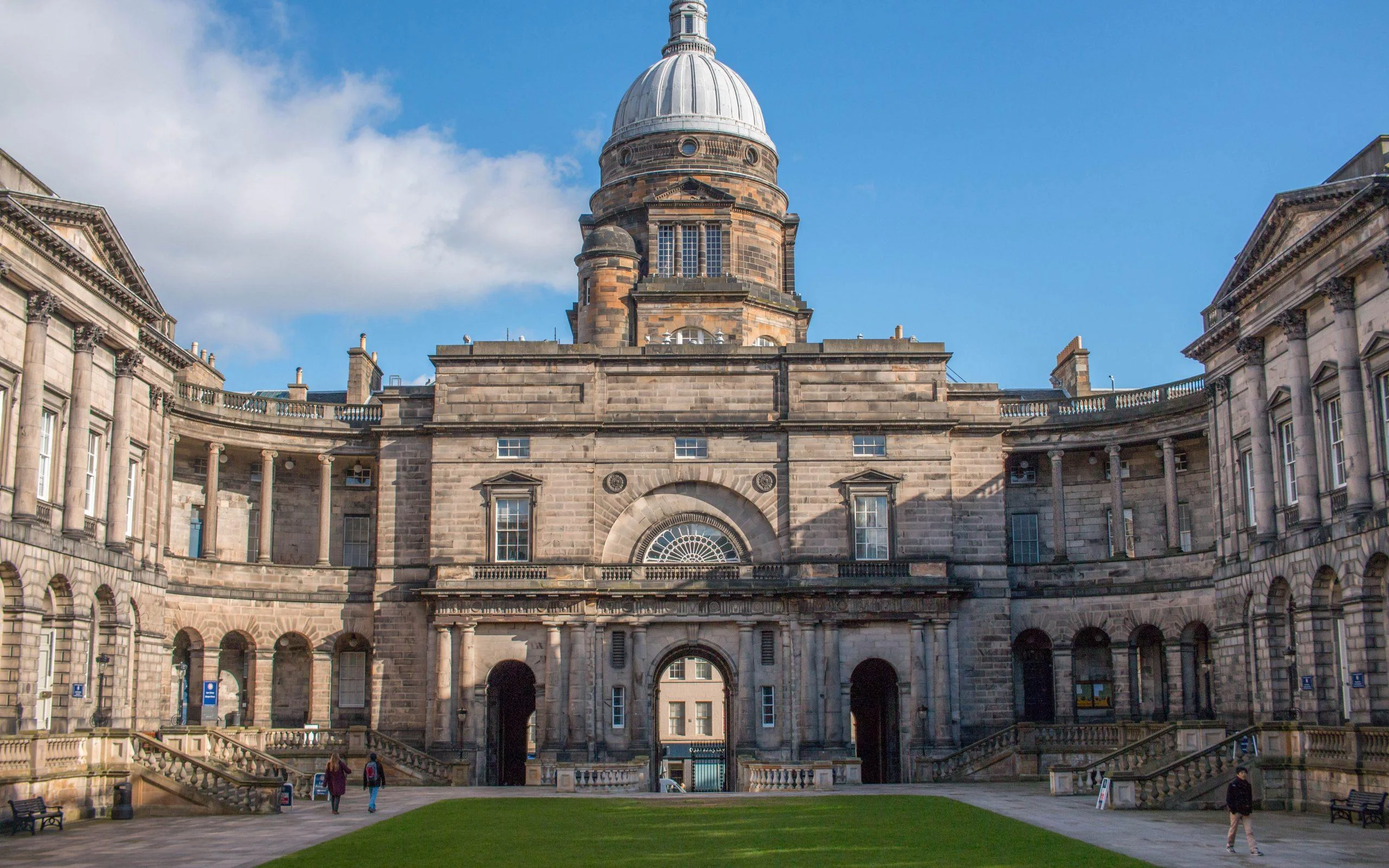
Politics and the Possibility of the Humanities
Yes, universities have a political aspect; they grant degrees, but their purpose is ultimately to inquire into what makes human beings flourish.

One Nation Spaced Out
Kevin Sabet’s new book addresses a problem that has bedeviled us for thousands of years: What should individuals and society do about the use of psychoactive substances?







